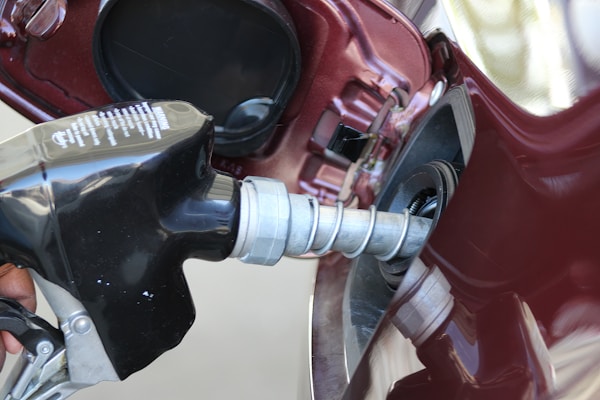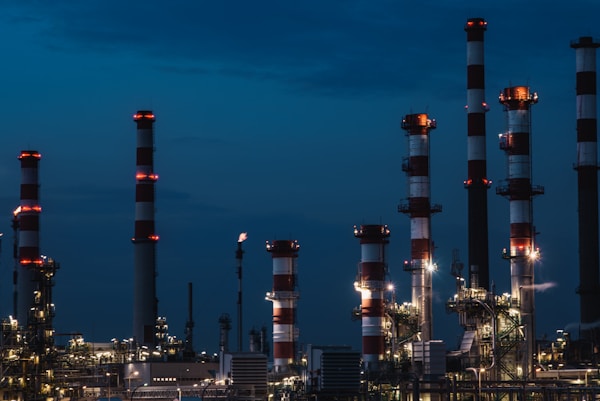Energy is a fundamental concept that drives everything in life whether it’s the electricity that powers our homes or the natural resources that fuel our vehicles. Over the years, various forms of energy have been discovered, developed, and harnessed to better our lives and the environment. In this article, we will delve into the different forms of energy, their benefits and drawbacks, and measures to effectively harness energy while maintaining environmental friendliness. Keep reading for an in-depth exploration of the world of energy.
The Evolution of Fuel Types

The first form of energy that humankind harnessed was fire, which ushered in an era of improved cooking, heating, and metal forging. As civilization progressed, humans began to utilize the power of wind and water for transportation, farming, and other tasks. The industrial revolution introduced the use of fossil fuels, such as coal, oil, and natural gas. These fuels produced massive amounts of energy and resulted in rapid industrial development. Today, you can find a fuel supplier in Saskatchewan to power anything.
In recent decades, we’ve seen the rise of renewable energy sources like solar, wind, hydroelectric, geothermal, and bioenergy. Technological advancements also continue to improve the efficiency and affordability of renewable energy sources, making them more competitive with traditional fossil fuel options.
Energy Efficiency in Homes and Buildings
Another crucial aspect of our energy usage is the efficiency with which we consume power in our homes and buildings. Energy efficiency improvements such as better insulation, energy-saving windows, and high-efficiency appliances can drastically reduce heating and cooling costs while lessening greenhouse gas emissions. Government and utility companies have introduced several programs and incentives to encourage homeowners to adopt these energy-efficient technologies and practices.
One way to improve efficiency in homes and buildings is by optimizing air conditioning (AC) systems. When AC systems are improperly maintained or poorly designed, they can consume a significant amount of power. This is why AC repair services in Clearwater, FL, and other locations are vital; they help ensure that your AC system is running efficiently and not wasting energy. As a result, homeowners and tenants can save money on their utility bills while reducing their overall impact on the environment.
The Future of Energy Storage

As more renewable energy sources are integrated into the power grid, energy storage becomes an increasingly important aspect of the modern energy landscape. Currently, the most common approach to energy storage is the use of batteries. Lithium-ion batteries, in particular, are known for their high energy density and relatively low cost. These batteries can store excess energy from solar panels or wind turbines, which can then be used when the sun isn’t shining or when winds are calm.
However, as the demand for energy storage grows, new and innovative solutions are being developed. These include compressed air systems, pumped hydroelectric storage, and even more advanced battery technologies. Researchers are also exploring novel methods of storing energy using chemical reactions or by converting electricity into thermal energy that can be stored and later retrieved as electricity. These advanced storage systems aim to make the transition to renewable energy more feasible and reliable, further solidifying their role in a sustainable future.
Smart Grids and Energy Distribution
Lastly, the future of energy lies in smart grids—electricity networks that optimally distribute power generated from various sources, including renewables. These grids incorporate advanced digital technologies to improve efficiency, reliability, and affordability. Smart grids enable real-time monitoring and management of energy consumption, paving the way for dynamic demand-response systems, which adjust power usage according to supply and demand trends.
Smart grids not only help to integrate renewable energy sources but also improve the stability of the energy network, especially in times of increased demand or supply disruptions. For instance, during natural disasters or equipment failure, smart grids can reroute electricity to avoid widespread outages and improve system recovery. In essence, smart grids provide a more sophisticated and forward-looking approach to managing our energy consumption.
Altogether, the future of energy revolves around the development and implementation of cleaner fuel types, improved energy efficiency, advanced energy storage systems, and intelligent grid technologies. By embracing these innovations, we can work toward a more sustainable and environmentally-friendly global energy system that meets our rapidly evolving needs.